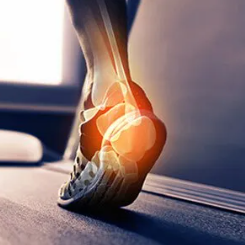Sports injuries don’t just affect competitive athletes. Everyone who enjoys an active lifestyle can end up with a sports injury, whether it happens while you work out at the gym or when you go out for an evening walk. To schedule an appointment, call the office in Spokane or Richland, Washington, or use the online booking feature today.

Sports Injuries FAQ’s
Though more injuries occur while playing football, soccer, basketball, and baseball than any other sport, the fact is that anyone who is active can suffer a sports injury, whether it happens while exercising or taking a walk.
Your risk of sustaining a sports injury increases when you engage in activities without the proper training, when you use poor technique, and when you follow an intensive training schedule without taking enough time to rest.
The most common sports injuries include:
- Sprained ankle
- Knee ligament injuries
- Meniscus tears
- Shoulder dislocations
- Rotator cuff injury
- Tennis elbow
- Golfer’s elbow
- Runner’s knee
- Fractures
Overuse injuries and inflammatory conditions like tendonitis also frequently occur in active people.
Sports injuries typically result in symptoms such as:
- Pain
- Swelling
- Bruising
- Joint instability
- Limited mobility
- Muscle weakness
- Tingling or numbness
- Inability to use the affected limb
Sometimes a sports injury is so severe there’s no doubt that you need medical care. One of the challenges of minor to moderate injuries is deciding when to schedule an appointment to have it checked out.
If you have any doubts, it’s always best to have your injury examined. Continuing to use damaged muscles, ligaments, tendons, and bones only leads to progressive damage and instability.
The severity and type of injury determine the first line of treatment. Some injuries, such as complex fractures, ruptured ligaments, and some meniscus tears, need surgical repair.
Most sports injuries, however, are treated with rest or immobilization, modifying your activities, and using therapies to reduce the swelling and pain. In addition to standard care such as ice and heat, you may need therapeutic injections or anti-inflammatory medication.
At every stage of your recovery, physical therapy is a cornerstone of treatment. You need to engage in passive and active exercises to promote healing, reduce inflammation, rebuild your strength, and restore mobility.
As your healing progresses, your rehabilitation includes exercises and training specific to your sport, so you’re prepared to return to play.
The Restore Health team may recommend regenerative medicine or interventional pain management, depending on your healing and pain level. If your sports injury is severe or slow to heal, platelet-rich plasma can accelerate the healing process.
If your pain persists too long or prevents you from participating in your rehabilitation, interventional treatments may help. Options such as nerve blocks or epidural steroid injections can diminish your pain long enough to allow you to return to physical therapy.
The team at Restore Health are able to determine which treatment option may be beneficial and will aid in referring you to the appropriate specialist for this treatment. Call the office nearest you or book an appointment online today.
